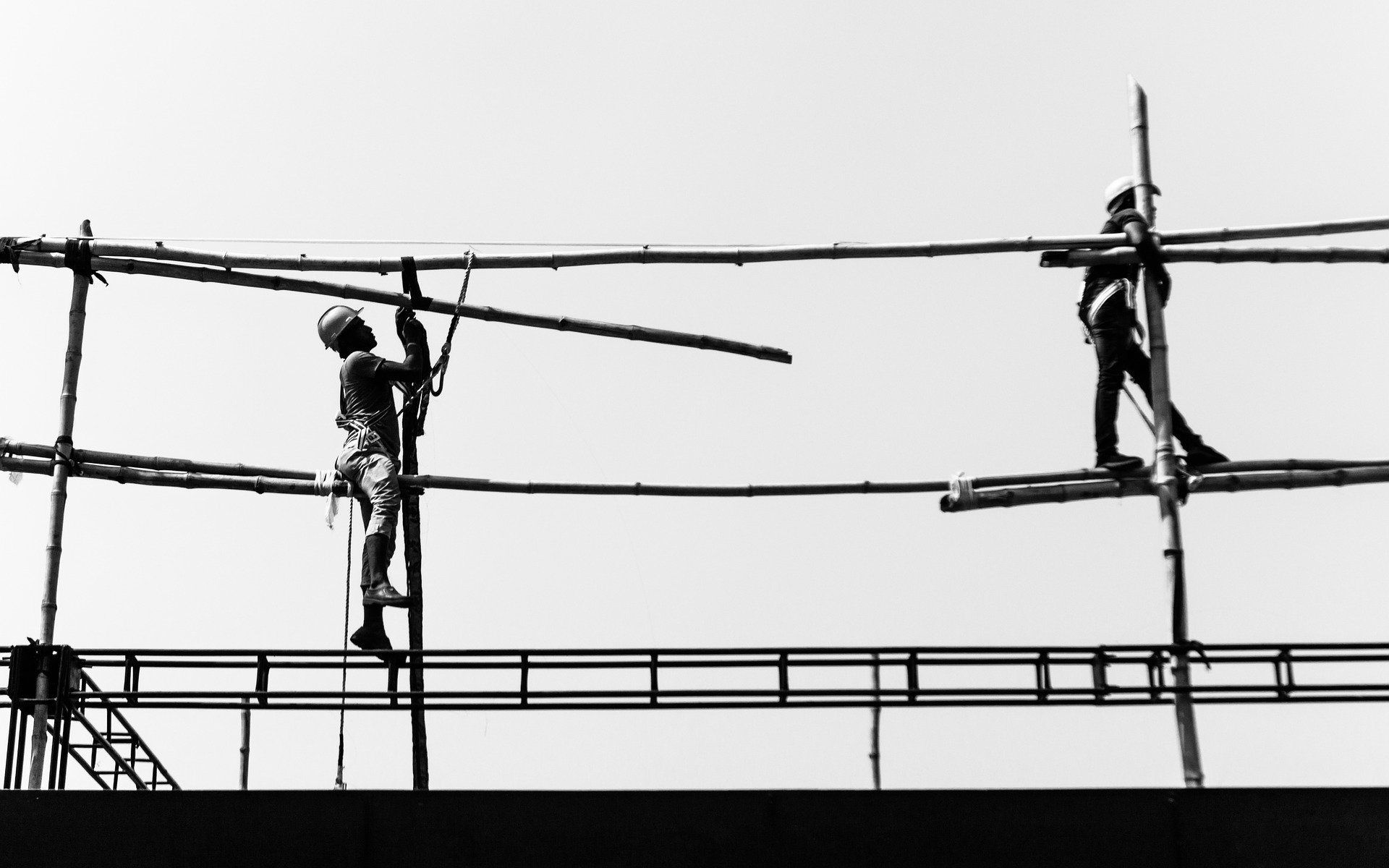With India in lockdown and economic activity virtually brought to a standstill, what will the effect of such radical state interventions be on food prices? Here Vatsalya Srivastava (O.P Jindal Global University) and Apurva Harsh (Google, India) explain why we shouldn’t look to blame the shopkeeper, what policy options are available to the government in the face of rising food prices, and the best way forward for a large and mostly poor country like India.
A visit to the store in my neighbourhood, 58 kilometres from the heart of New Delhi, revealed that the price of peanuts has doubled, in last 10 days! As I was coming to terms with this, I overheard a conversation between another customer and the shopkeeper. This customer, more vocal in his dismay at the rise in price was quick to accuse the shopkeeper of making the most of the pandemic. The shopkeeper, calm but firm, pushed back. Just like the police and doctors, he too is providing an essential service in the midst of a lockdown has completely upended the distribution chain that brings goods to shops like his, he said. He now had access to just one wholesaler – 15 kilometres away and on the other side of the Delhi border. Of all his acquaintances, only one had a pass for movement during the lockdown. This person was now ferrying goods to shops in his personal car at great personal risk, cost, and inconvenience. Therefore, it was a minor luxury that peanuts were even available in the shop!
The shopper in question paid up and left. But the prices of commodities will continue to go up in the estimated 15 million kirana (small grocery) stores across India, and so will the resentment against it. The explanation of first resort for rising costs is often the greed of the shopkeeper. Here, we examine this simplistic claim, the policy options available to the government in the face of rising prices, and the best way forward for a large and mostly poor country like India.
A basic tenet of economic theory is that market price is one where demand equals supply. There are two aspects to supply, as indeed to demand – ability and willingness. Suppliers must have both the ability and the willingness to supply a certain amount of a good at the prevailing or determined price. Ability depends on the availability or stock of the good, while willingness is a function of the costs of supplying and the expected returns. A deficit of either ability or willingness would lead to the supply being curtailed and/or the price rising.
In the current scenario, as aptly expressed by the shopkeeper, even if sufficient stocks of a good are available there is a high cost to selling: “you are afraid of the encounter with 3-4 people, we come into contact with 100 everyday … my personal car that has to be used to ferry things back and forth has been worn down in two weeks”. The shopkeeper will factor these additional costs into the price at which he is willing to sell. From a buyer’s perspective, this will look like price gouging in the face of a crisis. The seller, on the other hand, would feel that the higher price more accurately reflects the actual cost of making a good available.
This simple analysis is not limited to the case of the local shopkeeper but extends to many other businesses. For instance, truckers may be willing to incur the cost of them becoming infected and not be able to return to their village only for a higher than regular renumeration. This is not to say that there will not be businesses that are run solely as racketeering and profiteering enterprises. But a price rise is insufficient evidence for market manipulation. It is important that we make this distinction, particularly when evaluating the response of local businesses, which seem to act fairly under normal circumstances.
”No famine has ever taken place in the history of the world in a functioning democracy”
Democratic governments can be held accountable by citizens and so have to respond to complaints of wide-spread distress of any kind. The incentives innate to a democracy that underlie Amartya Sen’s assertion will ensure that the government will have to act against rising prices, even if they are not driven by an intention to gouge customers. There are two distinct policy options that are considered to be available to a government in responding to such situations. It can either take over the distribution and allocation responsibilities from the market or it can enact price ceilings, at least for essential goods.
The government taking over the distribution and allocation of goods would impose a massive cost and exertion on an already stretched government machinery. Even then, it is unlikely that government distribution systems can supplant the existing networks that extend to every small street in every small village, and certainly not at short notice. More than a century ago, John Stuart Mill pointed out that “though the Government can do more than any other merchant, it cannot nearly do so much as all the merchants”. This was codified in the famine codes of the British government India, advising that “much caution will be required in every case lest interference should aggravate the evil which it is designed to avert and have the effect of preventing traders from entering the market while it is being operated upon by the Government”. We would do well to heed this advice.
Price ceiling does seem to be less invasive and onerous to implement. Little wonder then that it has been the government’s preferred policy option in the past, including in the early days of the present crisis. But this isn’t a risk-free, cost-free alternative either. The cost of monitoring and enforcement would be significant. Many of us would have seen recent videos of government officials raiding and sealing kirana shops that were found charging more than the government stipulated prices. Is it really wise to criminalize shopkeepers and shut down shops at this time? Would that not further constrict supply?
Even if somehow shopkeepers across the country could be made to adhere to price controls, it might lead many to shutter their business as the prices would not compensate them for the costs they incur. Or worse, the policy meant to protect consumers interests will end up harming them as a black market will come up, sucking away goods and materials from the regulated shops that will remain functional. India’s relationship with price controls is long and not necessarily a pleasant one.
The Way Forward
This still leaves the problem of many millions not being able to access essential supplies, a glaring gap that cannot go unplugged. Our recommendation is that, at this point in time, the government must focus solely on the poorest, the people who are most likely to be completely priced out of the market. This would entail a warlike effort to ensure the continuity and accessibility of the Public Distribution System (PDS). Stranded or out of work workers housed in camps or shelters should be another priority. Many states have made strides in this regard but have complained of inadequate financial support from the Centre. Similarly, the cash allowances earmarked for the poor should reach them without delay or red tape. In fact, the government must also consider topping up these cash transfers.
These are still early days in India’s fight against Covid-19. The state machinery is already engaged on multiple fronts – enforcing law and order, ensuring essential services, preventing and treating Covid-19, housing migrant workers, to name a few. The government needs to pick its battles carefully. It must decide which fires it needs to fight immediately, and which will burn themselves out in the course of time. There will never be enough resources to solve all the problems that come with a crisis of this magnitude.
Policing the price of peanuts and similar goods should not consume precious government resources. The middle class will manage. They might feel the pinch, but they will manage. The middle-class shopper-shopkeeper transactions are often long-term in nature, which do not begin and end with the pandemic. The shop downstairs will not close when the epidemic ends; the spectre of the future will limit excessive pricing by the shopkeeper. The limited arrows in the quiver of a government strapped for resources should be targeted at places where they are needed most.
This article gives the views of the author, and not the position of the South Asia @ LSE blog, nor of the London School of Economics. Photo credit: Peanut. Credit: @isaidzib, Unsplash.







